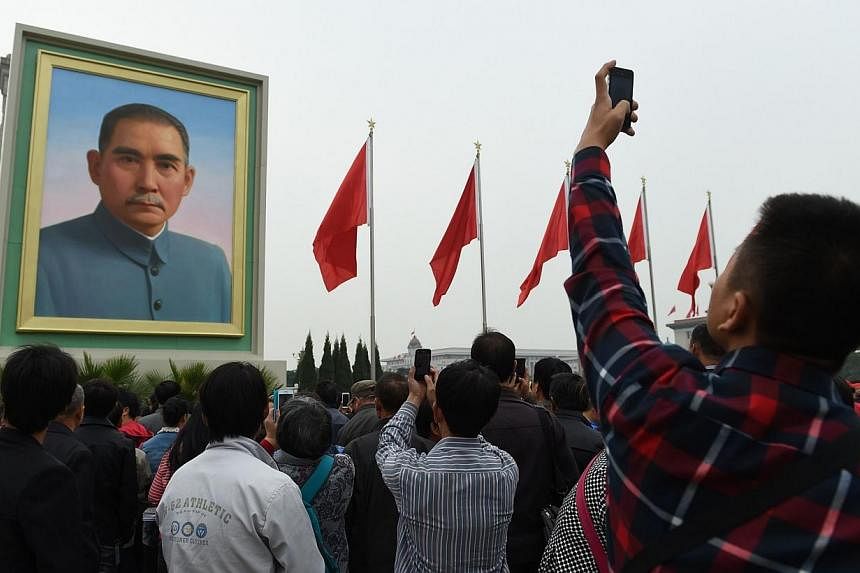BEIJING (AFP) - Fearful of comparisons to the 1989 Tiananmen Square crackdown, Beijing has launched a dual effort to suppress news of swelling pro-democracy protests in Hong Kong while giving a heavy spin to what information it allows to get through, analysts say.
Scenes of the massive, yet peaceful, protests that have taken over the streets of the former British colony are being flashed around the world, where the reaction has been mostly supportive.
On the Chinese mainland, however, the story is being spun to match a different narrative - one in which the demonstrators are "violent", "extreme" and being manipulated by foreign forces.
A front-page story on the protests in Monday's Chinese-language edition of the Global Times tabloid showed not scenes of demonstrators being tear-gassed at close range, but rather rows of police officers trying to keep a surging crowd of protesters at bay.
And in what experts say is a record clampdown on social media, news has adhered strictly to the party line, with the ruling Communist Party's censors working to erase social media postings from protesters in Hong Kong or any criticism - at home and abroad - directed at Beijing.
Viewers watching international broadcasters CNN and BBC in Beijing have seen their screens go dark as soon as the Hong Kong protests are mentioned, for as long as five minutes at a time.
"There's very little information aside from the official point of view that you can find that lasts very long," said Jeremy Goldkorn, the founder of Danwei, a Beijing-based firm that tracks Chinese media and Internet.
"That doesn't mean that people don't know what's going on, but the messaging is being controlled quite strictly," he added.
The photo-sharing app Instagram has been blocked in mainland China since Sunday night when the protests escalated.
That put the popular platform in the company of other foreign social media including Facebook, Twitter and YouTube already banned in the country's tightly controlled cyber space.
Fu King-wa, assistant professor at the University of Hong Kong's Journalism and Media Studies Centre and founder of the censorship-tracking website Weiboscope, said that the number of posts deleted from the popular microblogging site Weibo by mainland censors since Saturday has hit a record high.
In addition to targeting social media, Beijing also has recently added to a growing list of websites now blocked in the country, including the Hong Kong-based South China Morning Post, which has reported extensively on the protests.

